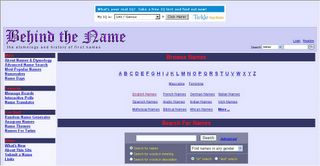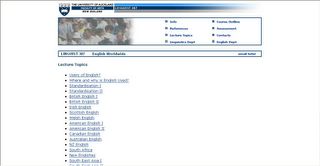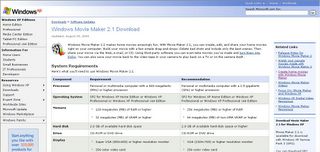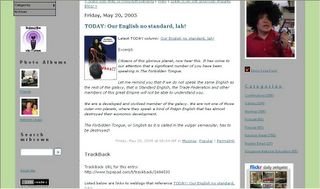This album is powered by
BubbleShare
- Add to my blog
Ready for pick-up
Hi guys,
Your quiz papers are now ready for pick-up. Please drop by my office anytime. I'll be leaving these papers on my desk.
aiden
NS vs NNS: From EFL students' point of view
Discuss the basic division between native speakers and non-native speakers of English and why has it become so controversial.
The following are excerpts from students' Essay test:
From IngridThe division between native and non-native English speakers is based on whether it is their first language or their mother tongue. We used to use regions to decide whether a person is a native speaker. If a person is born in countries such as US, UK, Canada, New Zealand, and Australia, then we usually consider he or she a native speaker. However, because of the large amount of immigrnats, there are large amount of ESL speakers appear in those Inner circle countries. Now, the controversy is the standards of distinguishing nagtive and non-native English. "Competence" in English becomes the considering division instead of accent and region, and many non-native speakers schieve the competence of native speakers or they even know more English vocabulary and grammar than those native speakers. This makes the division of NS and NNS so controversial because English is so widely used and the standard English differs from regions and places. The amount of ESL and EFL speakers are increasing and many of their English competence are considered better than some of the ENL speakers. Therefore, it is really hard to tell whether a person is native or non-native speaker by regions, accents, and countries. English has become an international language and from the phenomenon of code switching and code-mixing, we can see Englsih has been developed into many different kinds. The standard English does not only mean English used by native speakers, and the division of native and non-native English has become vague and without clear divisions, and that's why we said it has become controversial.
From AaronThe basic division of native speakers and non-native speakers conventionally would be whether the person is born and raised in a English-speaking country. However, to define 'standrad' English is not an easy task in a highly globalized world today. That's when schools of genetic division, geographical and division ofn circles come up. The reason why it has become so controversial is because some ESL countries is 'standardizing' their English, and the proficiency of non-native speakers has become better than those who 'own' English.
Video Resume Project
Click on a name (or file name) to view Video resume presentation. Right click on link, select 'save as' to download a file.
Ingrid
htm,
videoLinda
htm,
videoTing
Cindy Huang
Angela
Who speaks English today?


Read the article,
click here.
What's in a name?
Click on a name to view individual photostory. Each photostory is about 4-5 minutes long. The film contains a student's interpretation of his/her Chinese/English name, what it means (literally) and what it means to him/her and how it has affected his/her personality, character and well-being.
Group 1
Stella (WMV),
Sam (WMV),
Daniel (MP4)
Group 2
Jennifer (WMV),
Jenny (WMV),
Ingrid (WMV)
Group 3
Claire Hou (WMV),
Carrie Huang (WMV),
Reggie Lin (MP4),
Betsy Wen (MP4),
Jocelyn Chen (MP4)
Group 4
Kimmi Chen (WMV),
Linda(WMV),
Cindy Huang(WMV)
Group 5
Justin (WMV),
Winnie (WMV),
Regis (MP4),
Jill (MP4),
Elsa (MP4)
Group 6
Vera (WMV),
Ruby,
Melody Tsai (WMV, 1 min 20 sec)
Group 7
Jason (MP4),
Cliona (MP4),
Leo (MP4),
Phoebe (MP4),
Wain (MP4),
Shonn (MP4)
Group 8
Julie Chou (WMV,
Margaret (WMV),
Erican Tian (WMV),
Stephanie (WMV)
Group 9
Aaron (MP4),
Ting Tsai (WMV),
Leo Kuo (MP4),
Cindy Hsu (MP4),
Angela (MP4)
To Carrie, Bernice, and Hsiao Wen- the files you sent are neither wmv nor avi. I could not open them. Can you please resend the files- make sure they're saved as wmv or mp4.
Note: To stream the video, click a name to play. To download the video to your hard drvie, right click your mouse and select 'save as'.
Behind the name, the etymology and history of first names, http://www.behindthename.com/


Get a Chinese name (if you don't have any), http://www.mandarintools.com/chinesename.html


Check the meaning of your English name here, http://www.kabalarians.com/index.cfm


American vs British English
Basic Differences and Influences of Change, http://www.uta.fi/FAST/US1/REF/usgbintr.html


http://www.arts.auckland.ac.nz/online/linguist307/topics.html This site provides a good outline of the topics that we have covered in class. You can use this outline to check how much you know about the topic.


http://www.ku.edu/%7Eidea/ "All recordings are in English, are of native speakers, and you will find both English language dialects and English spoken in the accents of other languages. The recordings are downloadable and playable for both PC and Macintosh computers." It's a good site with lots of audio samples. Listen to the different varieties of the English language.


Windows Movie Maker 2.1 Download
Windows Movie Maker 2.1 Download

 Click here.
Click here.
Write An Attention-Getting Resume
Write An Attention-Getting Resume


From CBS.com
click here
Sound Smart- tips from Interview Stream
Great examples from Interview Stream

 Click here
Click here
How to write a resume
How to write a resume


Click
here
Video Resume Links
Samples of Video Resumes


Creative video resumes, click
hereSimple but effective video resumes, click
hereSimple video resumes, click
hereHere's another one.
Short video embedded on a webpage, click
here Another example of embedded video resume, 'Kristen', click
here.
Lots of samples
here.
Impressive display of language skills,
Stephanie's video resume
The Forbidden Tongue, or Singlish
Citizens of this glorious planet, now hear this. It has come to our attention that a significant number of you have been speaking in The Forbidden Tongue.
Let me remind you that if we do not speak the same English as the rest of the galaxy, that is Standard English, the Trade Federation and other members of this great Empire will not be able to understand you.
We are a developed and civilised member of the galaxy. We are not one of those outer-rim planets, where they speak a kind of Pidgin English that has almost destroyed their economic development.
The Forbidden Tongue, or Singlish as it is called in the vulgar vernacular, has to be destroyed!
-------------------------------------------------------------------I personally feel that Singlish defines who we are as a nation... Singlish(Singapore English) and we should embrace it proudly. Gives us some sort of identity of being Singaporean although we haven't got an established nationalism. (A true embodiment of our creolised culture) But on the other hand, it is necessary that we should be able to distinguish the right/wrong times to speak it. Neither does it mean that we should be pardoned for not knowing the "true" forms of the language.
Speak correctly to an American/Australian/British to be understood. Speak Singlish to "kaki nang" to connect with each other, identify with each other.
Posted by: mermie | May 20, 2005 12:17:22 PM

 Link
Link
Topic prominent
Topic prominent
Singlish is topic-prominent, like Chinese. This means that Singlish sentences often begin with a topic (or a known reference of the conversation), followed by a comment (or new information). Compared to other varieties of English, the semantic relationship between topic and comment is not important; moreover, nouns, verbs, adverbs, and even entire subject-verb-object phrases can all serve as the topic:
Dis country weather very hot, one. �X In this country, the weather is very warm.
Dat person there cannot trust. �X That person over there is not trustworthy.
Tomorrow doh need bring camera. �X You don't need to bring a camera tomorrow.
He play soccer also very good one leh. �X He's very good at playing soccer too.


Speak Good English Movement 2005
Speak Good English Movement 2005!


Go to
Speak Good English link
Kahru's Outer Circle countries












